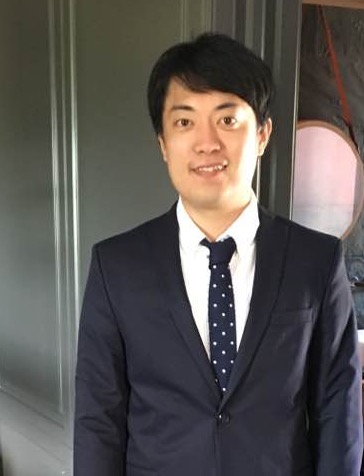At this moment, different kinds of technologies are developed and improved all around the world. They are implemented in excellent tools and resources we use every day. We cannot deny that many technological developments and innovations play a significant role in our lives—the kind of life we are currently enjoying because of technological developments. Technology improved our lives, and the present things are now better, faster, easier, and more convenient, but what is the actual value of technology, and why should we invest and innovate modern technology? Ryosuke Asakura (RA), a financial planning analyst and corporate business designer answers these questions regarding the importance of innovation and modern technologies in our current society.
We live in interesting times!
NR: What do you think is the value of technology?
RA: On the first hand, the value of technology lies in the fact that it can enrich people’s lives. If technology can’t do that, there’s no need for us to evolve it. As described in Nineteen Eighty-Four written by George Orwell, there can be some horrifying aspects. However, as many people have used online shopping and Uber Eats in the world where COVID-19 is widespread, it can eliminate the inconvenience of people’s lives. On the other hand, it can be pointed out that technology can increase employee productivity for companies.

Image via University of Oxford
“From simple financial formulas to highly complex techniques, combining qualitative and quantitative models, various methods are currently used to work out what new technologies are worth.”
NR: Why is important today to innovate and invest in modern technologies?
RA: One of the reasons is that technology is changing the rules of modern business. It creates a massive gap between companies that use the latest technology and those that don’t. The latter company is likely to lose the competition at that point. Innovation refers to the introduction of new technologies and strategies and the implementation of new ideas to improve work processes, increase efficiency, reduce operating costs, improve your offering, and increase profitability. However, business innovation and introducing something new is the only way to make progress. If you haven’t experimented or researched, no new ideas will emerge. Without it, you would not have the opportunity to find new and improved working methods or technologies that could revolutionize your processes. Apart from the growing competition in the marketplace today, innovation offers a competitive edge. There are many reasons why innovation is beneficial because there are reasons why stagnation puts you at a disadvantage.
NR: Are innovation hubs an integral part of digital transformation?
RA: To some extent, yes. Rules in the innovation hub can slow down the digital transformation. As the technology that underpins digital transformation evolves day by day, the rules and regulations of the innovation hub are likely to be a hindrance to facilitating it.
NR: Why is Asia becoming an increasingly popular region for innovation centers?
RA: There are two points. Traditional innovation centers such as Silicon Valley are no longer cost- effective. Another point is that, as it is said to be the growth market, Asia is growing rapidly as a market and is attractive, so it is effective to create an innovation center there.
NR: What is the current global market size of the tech innovation market and which tech trends are making more impact today?
RA: AI (Artificial Intelligence) has the greatest impact, enabling autonomous driving and innovating people’s mobility. It is an extended intelligence of people, and the possibilities are endless. It is also possible to take on the offshore of human private activities (what humans do not want to do).
NR: AI and digital capabilities are now a necessity for companies to thrive, how can companies make the best of these?
RA: Digital transformation is applying digital capabilities to processes, products, and assets to enhance efficiency, increase customer value, manage risk, and navigate new revenue generation opportunities. This transformation is global and therefore involves adopting digital technologies for both internal operations and external ones. To thrive, the companies need to have the courage to innovate and to take the risk as new technology requires a place to try it and a place to fail. In that sense, Toyota’s Woven City will bring a breakthrough to the automotive industry as we are still speaking about an ever-changing world.
NR: The remote-work revolution is using tech to recreate the in-office experience, what do you think about this?
RA: Of course, here, we can see different ideas and perspectives. Richard Houston from Deloitte tells staff to work from home forever; simultaneously, as Goldman Sachs boss David Solomon points out, there are industries and occupations where remote work reduces productivity. I don’t think technology has benefited them. Also, when we’re at work, there are times between on and off, such as coffee breaks and small conversations with colleagues, where we can more often find breakthrough innovation, but in remote work, such moments rarely come.


CEO Richard Houston from Deloitte (left) says the firm trusts its people to decide how they can deliver their best work in a way that works for them and their clients, and Goldman Sachs CEO David Solomon (right) has rejected remote working as a “new normal.”
NR: The financial and technology innovations from blockchain technology have taken the world by storm, how sustainable is this industry?
RA: To be Sustainable, blockchain will need to be assured of practicality. In that sense, I think the mobile app “ICC AOKpass” that authenticates Singapore’s digital COVID-19 health certificate is a good example.
Co-developed by Singapore-based startups AOKpass and Perlin, the app allows consumers, workers, and businesses to more safely and quickly resume commercial activity in the context of the COVID-19 pandemic how the International SOS Group presents . The development of ICC AOKpass comes as many firms and governments explore how to allow immune and low-risk individuals to more safely re-enter the workforce based on their COVID-19 compliance status. This creates a clear need for a trusted and standardized global system to share this information privately and verifiable. ICC AOKpass, for the first time, will use cutting-edge blockchain technology to ensure complete user control over peer-to-peer sharing of COVID-19 medical compliance. At all times, users maintain full control over their medical information stored securely and privately only on their devices.

ICC and International SOS launch app for digital verification of COVID-19 compliance status. Image via ICC(International Chamber of Commerce)

NR: Which other industries do you think need more tech innovation and why do you think so?
RA: There are two noteworthy industries. One is the traditional Japanese industry, especially handicrafts, many of which are carried by traditional craftsmen. The products they make need to be custom-made and technically sophisticated, so few people take over their jobs. It is necessary to make good use of the latest technology and make it an industry that is easy for people to inherit the technology to enter. The other is the shipping industry. Compared to the land transportation industry and the automobile industry, this industry has not been innovated for a long time. In today’s world, where global logistics are commonplace, innovation is considered one of the most needed industries.
About Ryosuke Asakura
With a degree in economics from Waseda University and a master’s in Business Administration from Babe-Bolyai University (Romania),
Ryosuke Asakura is a financial planning analyst and corporate business designer with a deep interest in audit and tax business. His study areas are organizational design, product and service development, innovation management, and global operations. He works as a Business Architecture Director at JCE Japan Creative Enterprise and researches various companies overseas.
Prior to his current role, Ryosuke worked a Tax Accountant Corporation in Japan. He managed an average of 20 corporate clients, ranging from small to medium-size organizations. His team helped these customers do various financial and business development activities, leading to sales-boosting through his services.











